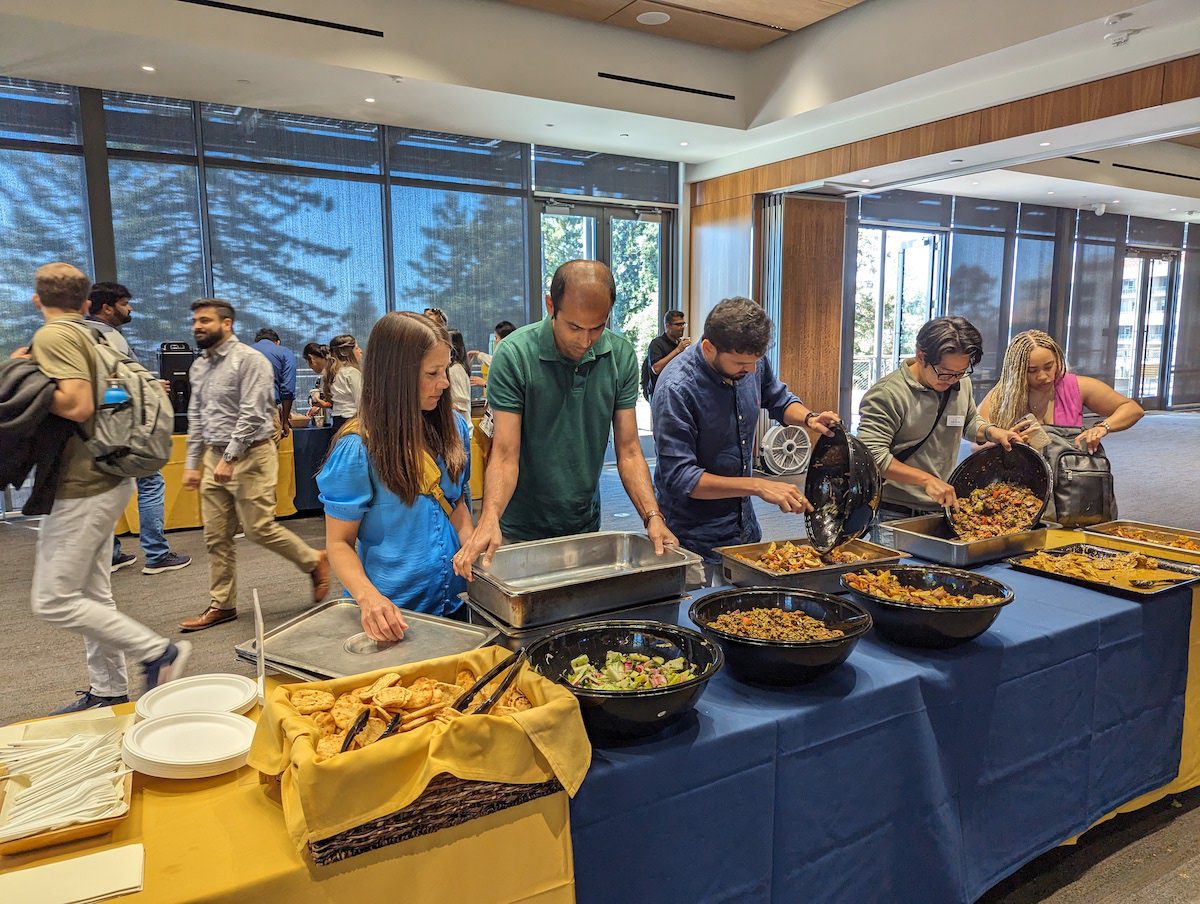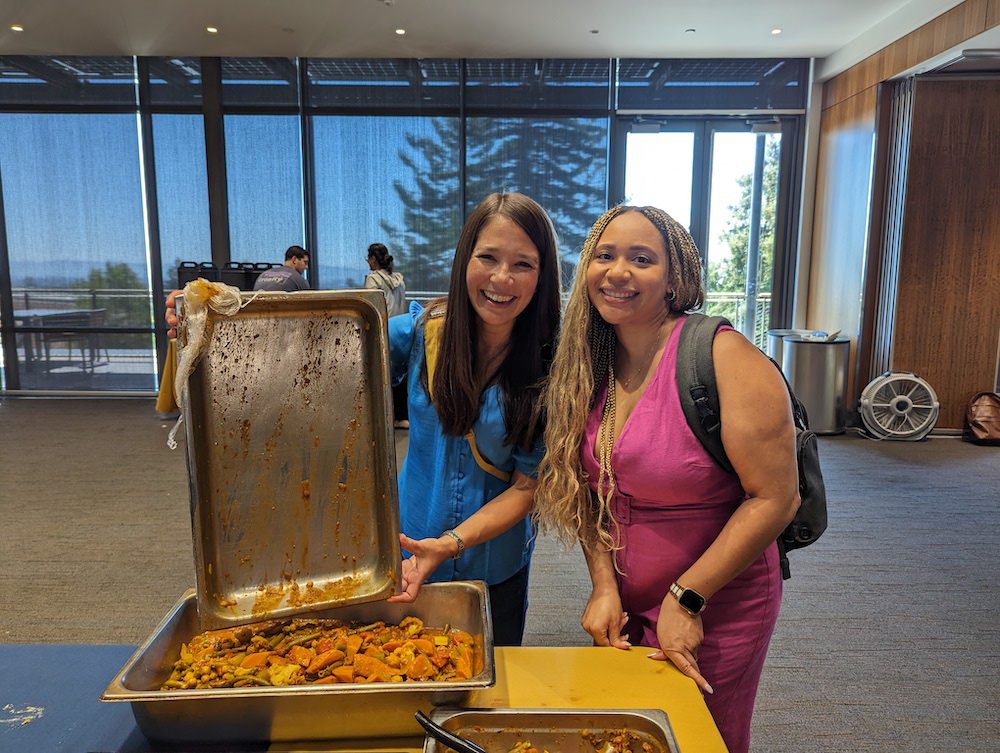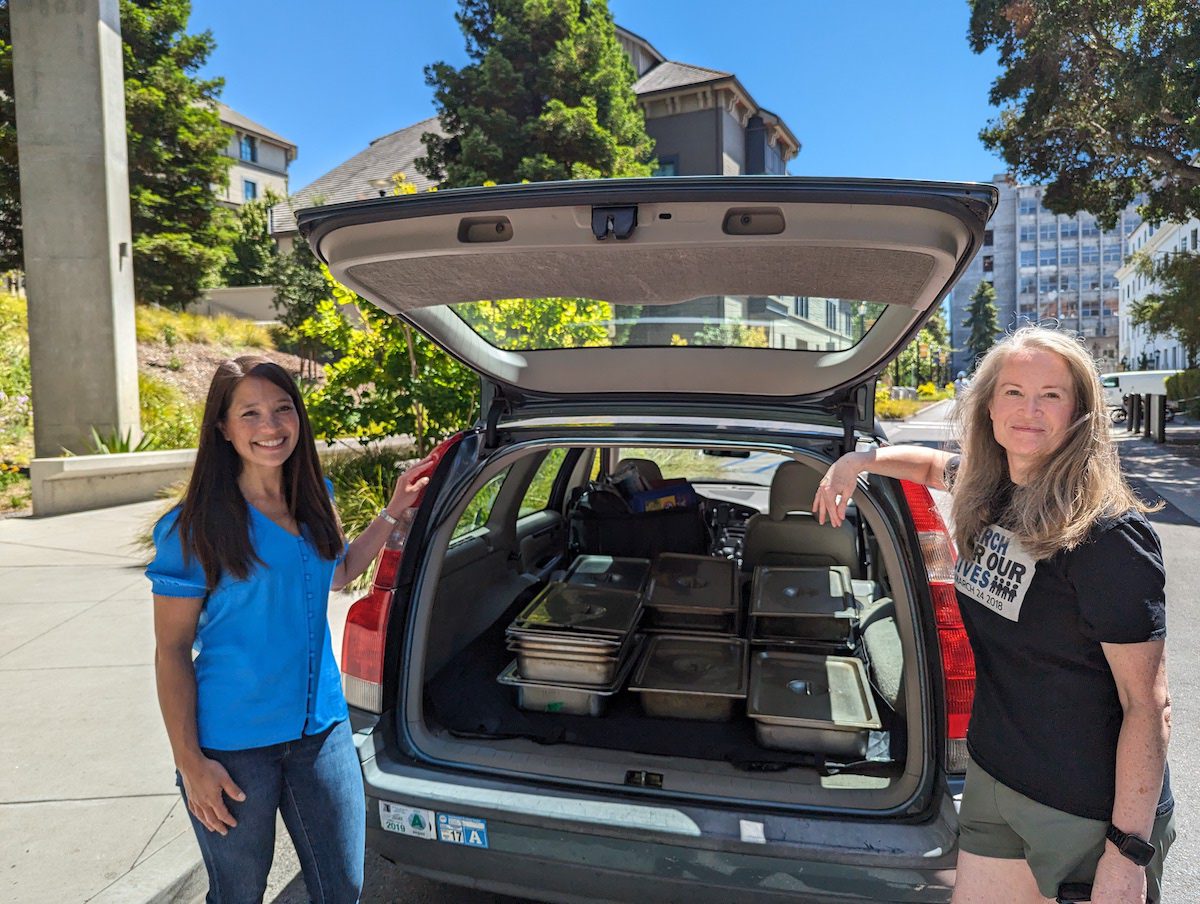
It’s lunchtime on a recent Saturday and Melissa Little and a group of fellow Berkeley Haas Evening & Weekend MBA students are scooping gluten-free noodles, free-range chicken, and organic salad into large pans after lunch.
“We only have a few minutes to load the last of the bowls before class starts,” said Little, EWMBA 24, an energy consultant who most recently worked as a strategic energy partnerships manager at Google. She and her classmates rush carts of food down the Chou Hall elevators and load up a hatchback whose driver is waiting at the curb.
The group has completed this mad dash since October 2022, when Little kicked off a program to donate hundreds of pounds of the cohort’s uneaten lunch food to the Dorothy Day House in downtown Berkeley, which shelters and services homeless and low-income people in the area.
For Little, the program is a long-awaited feat.
During her first few Saturdays in the EWMBA program, she discovered that most of the leftover lunch food for her Saturday cohort was thrown out— from boxed lunches to trays of turkey meatballs to chocolate chip cookies.
“It drove me crazy for the rest of the school year,” Little said. “I live in Berkeley and ride my bike here past unhoused people who could be eating this.”

Little worked with Kelly McCartney, a coordinator with campus’s Bancroft Catering, to figure out how she could donate the extra food. While McCartney was eager to help, Little didn’t yet have a partner to pick up the food and make her plan work—until she started a class called Design Thinking, taught by Lecturer Dave Rochlin.
In the class, her breakout group focused on the social sector and chose to address the needs of the unhoused. Little, a member of the Haas Sustainability Task Force, was on a mission to figure out how to donate the cohort’s food to a nonprofit in Berkeley.
Rochlin’s class recommends starting with user-centered research, including on-site visits, which led Little to Dorothy Day, where she met with Executive Director Robbi Montoya.
They talked for an hour straight, discussing the complex needs of the unhoused community and, eventually, how to make a food rescue plan work. Montoya agreed to transport the extra lunches to Dorothy Day every week if Little could meet a driver to get the food to the curb, and help load it.

Andrea Carroll, a cook at Dorothy Day, now transports the food from Haas and helps figure out how to best use it to build between 100-200 dinners that night. “The fact that we don’t have to dip into our storeroom to put out delicious meals is a huge boon to our residents and the folks we provide meals to out of our back door,” she said. “It’s such a good variety of lovely, fresh food that’s really healthy.”
Little recruited classmates, including Kevin Cheng, also EWMBA 24, to help her collect and load the food each week. To stay organized, she designed a logistics system to log communication with the Dorothy Day House volunteers and map out routes from Chou Hall to downtown, even on Cal football days.
A year later, Little and Cheng continue to volunteer together every Saturday. Cheng, who had volunteered with the Berkeley Food and Housing Project as a Cal undergraduate, said he enjoys serving hot meals to the community. So when he learned about Little’s project, he wanted to help give back, as well as use what he’s learned about problem-solving at Haas. “It’s a way to create opportunities for reducing waste and redirect food for good,” he said.
Rochlin said he was thrilled to learn about the successful outcome of an enterprise that had launched in his class. “This is what we hope to see,” he said. “Haas is at its best when the students take what they learn in the classroom and apply it outside in the world —and it’s even better when they create impact for populations in need. It’s a perfect example of Beyond Yourself.”
Haas is at its best when the students take what they learn in the classroom and apply it outside in the world. —Lecturer Dave Rochlin
Little is now working with Danner Doud-Martin, director of Haas Campus Sustainability, to make food rescuing a permanent student role within the Haas Sustainability Task Force. Their goal is to ensure that Little’s work with Dorothy Day will continue after she graduates.
Doud-Martin and Little are also looking to grow the program so that food in other Haas programs won’t go to waste. “The work that Melissa has done this past year on behalf of Haas and the EWMBA program with the Dorothy Day House is nothing less than extraordinary,” Doud-Martin said.
“This is a fantastic partnership,” Carroll said. “We’re saving this food by providing it to people.”